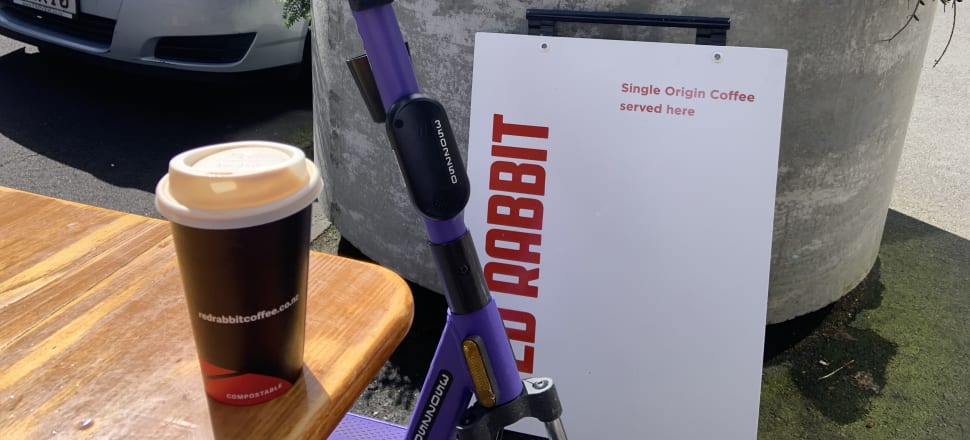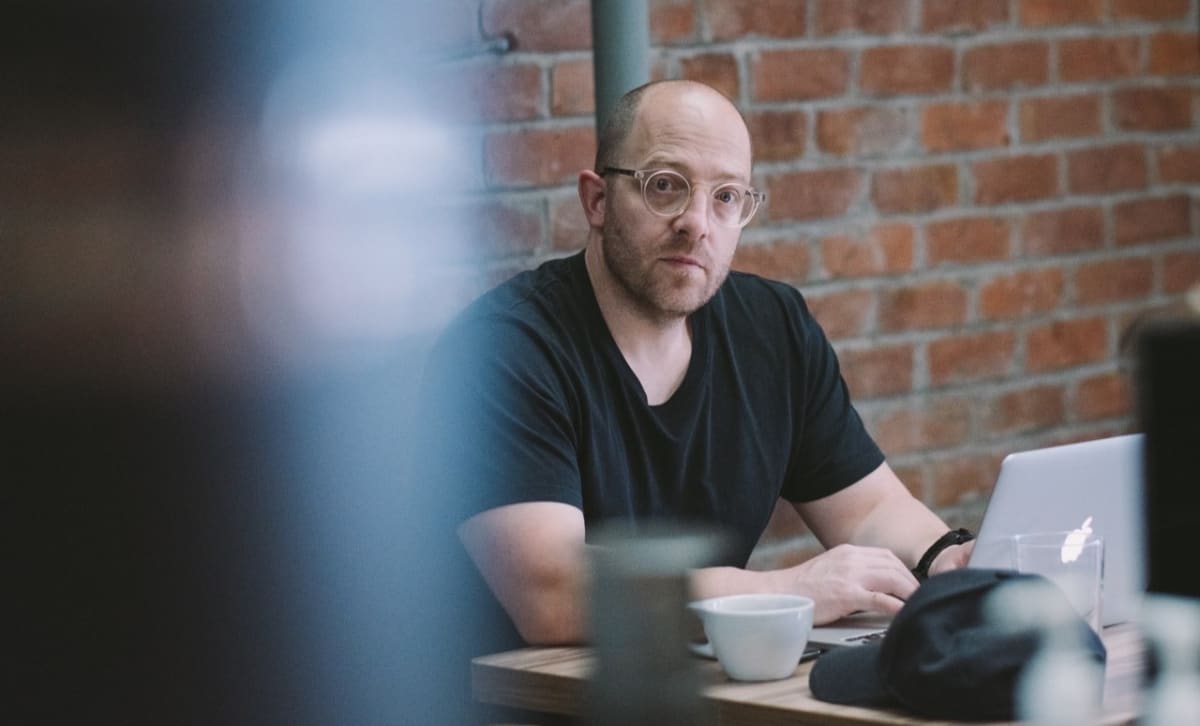
Stats NZ says food prices have risen 8.3 percent in the past year; the man selling New Zealand's most expensive takeaway coffee explains why
When Steve Barrett hiked coffee prices at his Auckland cafés a few weeks ago, he knew he'd get flak – but he says he had no choice. Somebody had to stand up for the industry.
At the three Red Rabbit outlets, the price of the definitive 10oz double-shot flat white, so definitive to Antipodeans, is up a dollar to $8.50. A long black is now $5.50, and a cappuccino is $7.50.
"Standing up for our industry is really important," he says. "Yes, we are premium, but other businesses in our industry needed someone to step up first."
Traditionally, selling takeaway coffees was seen as high-volume, high-margin retail. That's why petrol stations market their coffees so intensively.
But for businesses where coffee is their raison d'etre (rather than just an additional service provided by untrained staff using automated espresso machines) it's become more and more difficult. For Red Rabbit, sales were down 60 percent over the past couple of years,
This week, Barrett acknowledges his "drastic price increase" now makes his takeaway coffees the most expensive he knows of, anywhere.
But he laughs despairingly at the old economic high-margin model. And he cries as he talks about trying to keep his staff in jobs through the pandemic.

"The industry has been consumer-focused in terms of what people are going to pay for a price of coffee. But the reality is, it's been under-price for a really long time. And if one roastery doesn't stand up and say something, no one else is gonna follow suit. And the coffee industry will actually suffer."
"It's not just us, but roasteries throughout New Zealand – in the last two years, we've seen anywhere between 10 to 35 percent cost increases across the board. Our industry has been hit harder by price increases from all of our suppliers, utilities, insurance. Freight has been a big one, because it's not just freight costs going up, but also delays and getting product on time."
Ahead of raising the prices, Red Rabbit advised consumers in-store, and on Instagram. "It's no secret that the last several years has hit hospitality harder than most," the company posted. "From suppliers, staffing costs, utilities, insurance and freight, we have seen increases anywhere from 10 percent to 35 percent. Compounded by increasing green coffee prices, a weakening New Zealand dollar and financial fallout from Covid, our hand has been forced and we must adjust our prices to maintain status quo."
Some customers were unhappy. "If the cost of living is driving people to spend less," wrote one, "isn’t increasing the prices gonna fuel this even more?"
But most were supportive. "While I know this is a large increase for a bunch of people. I know it must be a hard time for you as well. Will keep supporting you guys and am completely obsessed with your coffee," writes Dev.
"Love the transparency," writes another customer.
"Appreciate your honesty and transparency. We’ll still support you, without a sliver of a doubt. Best coffee in Auckland," posted a third.
Charging affluent Parnell and Newmarket consumers $8.50 for a coffee seems to epitomise conspicuous consumption, when many families are struggling to put basic foods on the table.
But Barrett explains he's simply trying to find a way through the staff and supply cost challenges, like every other business owner. For some, that will be keeping prices down and pushing volume; for him it's raising prices.
Responding to this week's 8.3 percent rise in the food price index, bigger retailers also point to their rising costs.
Foodstuffs NZ managing director Chris Quin says its average supplier cost increase has also risen 8.2 percent, but the supermarket chain has managed to hold its retail price increases to 6.1 percent.
"This analysis shows the heavy lifting we are doing for customers to absorb record cost increases so we're not passing them straight on to customers in the retail price on shelf," he says. "We’re facing a perfect storm of higher input costs and global supply chain challenges."
Acute labour market shortages are adding fuel to the fire, he says. "We’re one of the largest workforces in New Zealand, with our two co-operatives employing almost 40,000 people, so we are dealing with these pressures and their impact on a major scale."
Domestic transport costs are continuing to be affected by persistently high fuel prices at the pump, up 20 percent this year. International freight costs have also risen significantly, up from $500k-$1m a month, to $2-3m per month. The cost of a 20-foot shipping container has doubled in two years to $6,500.
At Countdown, commercial director Steve Mills agrees. The supermarket chain received four times the number of cost increase requests from suppliers in August compared to the same month last year. Some wanted to raise prices up to 72 percent increase.
"We pay our growers and farmers market prices for meat, dairy, fruit and vegetables, so higher international and local prices are reflected in what customers are paying for their food at the checkout. Compounding this, a large portion of the products Kiwis rely on are imported from overseas, such as bananas, flour, pasta and toiletries. Inflation on imported products is roughly double that of local products,” Mills says.
"We understand the genuine cost pressures suppliers are under, whether that’s input costs like grain, fertiliser and freight, or domestic factors such as labour shortages and increased wage rates. However we also know that our customers are facing higher cost of living pressures from all parts of the economy, not just groceries. Our job remains focused on balancing all the different pressures and costs we are experiencing to provide the best value we can."
New Zealand isn’t alone with its food prices, Mills says, with the UK experiencing 14-year high food inflation of 12.6 per cent in July, and the USA seeing food inflation of 10.9 per cent.
That’s true. But New Zealand food prices have risen significantly faster than countries in western Europe and our closer neighbours, Australia, Korea and Japan.
As for Steve Barrett at Red Rabbit Coffee, did he think about throwing in the towel during the pandemic? "It's a little bit emotional," he says. "I haven't had to answer that question to anyone before, but the biggest concern I had would have been to make sure that we kept on all the staff."
His voice breaks. "Because everybody's got to keep a roof over their head, everybody's got bills to pay...."
That, as well as supplier costs, is a reason why he's hiking the price of coffee. "It's down to the level of training and expertise that we pass on to our staff, to upskill them and how they should be rewarded for their skills and commitment."







